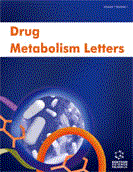Abstract
Background and Objective: Doxorubicin, an anthracycline anti-cancer drug, is effective for breast cancer and childhood lymphoma. Chronic cardiotoxicity has been known as a critical adverse effect of doxorubicin and is attributed to its metabolite doxorubicinol produced by carbonyl reductase 1 (CBR1, SDR21C1). Some flavonoids have been reported to act as inhibitors for CBR1, therefore, commercially available juices containing flavonoids are likely to be applicable as a prophylactic treatment against doxorubicin-induced cardiotoxicity by suppression of doxorubicinol production. In the study, fruit juices containing flavonoids were investigated for inhibitory effects on CBR1.
Method: Recombinant CBR1 protein was subjected to in vitro enzymatic assays with/without juices. An apple juice and a grapefruit juice were selected in the present study as candidates capable of inhib-iting CBR1.
Results: The enzymatic assays revealed that both juices potently inhibit the CBR1-mediated metabolic conversion of doxorubicin to doxorubicinol in concertation-dependent manner. The concentrations required for obtaining 50% inhibition (IC50) were 0.0012% (v/v) and 0.0014% (v/v) for apple and grapefruit juices, respectively. Additionally, it is worth noting that these juices showed inhibitory effects on doxorubicin metabolism by CBR1 even at very low concentrations (0.0001% (v/v)).
Conclusion: An apple juice and a grape fruit juice showed strong inhibitory effects on doxorubicin metabolism by CBR1 in vitro. These results suggest that the intake of flavonoid-containing juices can be a promising measure for protection against doxorubicin-induced cardiac toxicity, enabling patients to keep higher adherence with routine use in light of safety, economic performance and stable supply to market.
Keywords: CBR1, SDR21C1, flavonoid, polyphenol, doxirubicinol, juice.
Graphical Abstract
 29
29 7
7 1
1 1
1














